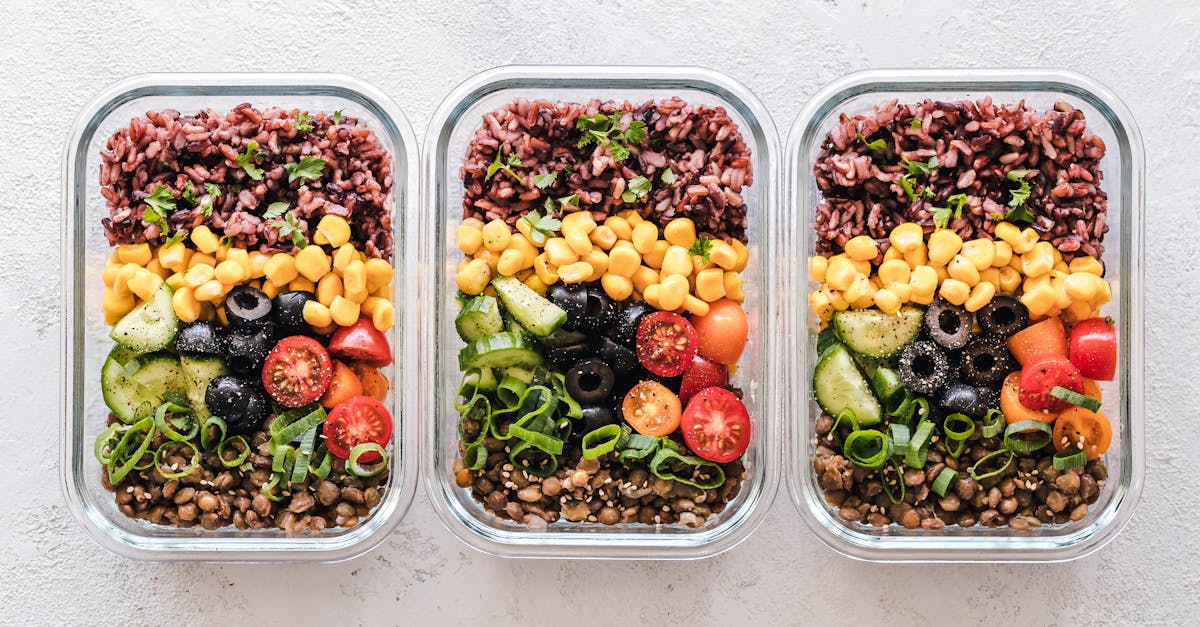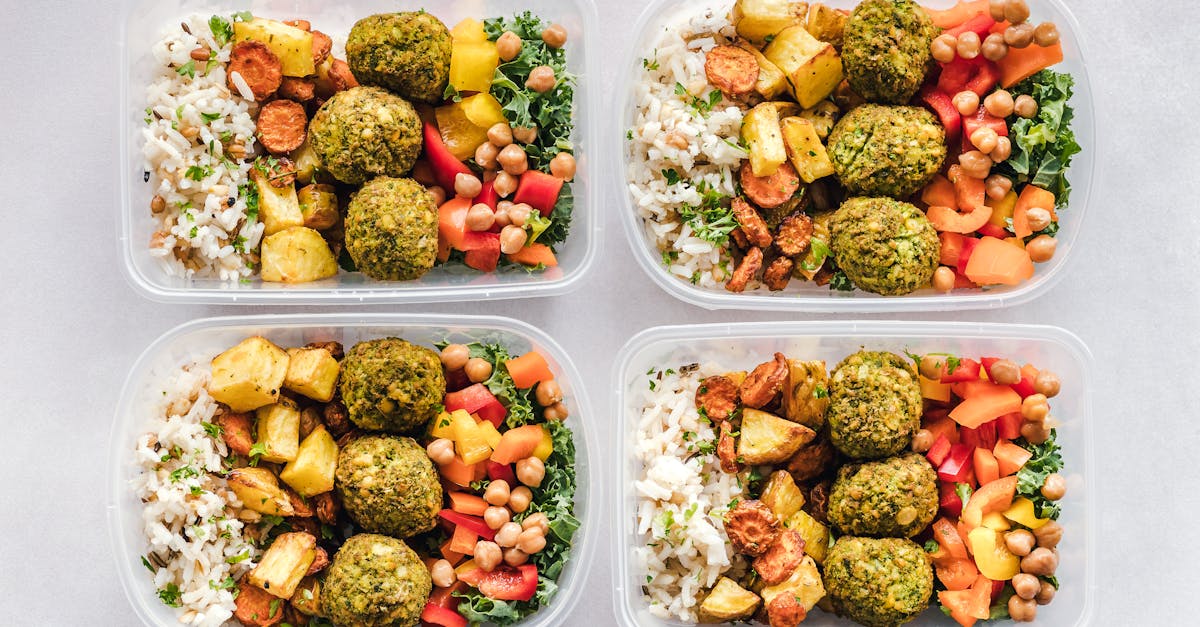Imagine feeling calm and relaxed just by adjusting your meals. Surprising, right? Nutrition plays a crucial role in mental health. If you’ve been struggling with anxiety, certain foods can actually help ease your symptoms. In this article, I’ll share nutrition tips for managing anxiety that can make a real difference.

Essential Nutrition Tips for Managing Anxiety
Nutrition tips for managing anxiety can help you feel calm. Food plays a big role in mood. What you eat can change how you feel. Healthy food can lower stress and boost joy.
Food choices are linked to mental health.
Start with whole grains. They have fiber and help keep blood sugar steady. Good blood sugar helps with mood. Try brown rice, oats, and whole grain bread.
Next, eat more fruits and veggies. They are full of vitamins and minerals. These help the brain work well. Aim to eat a rainbow of colors each day.
Vitamins and minerals support brain health.
Don’t forget lean protein. Foods like chicken, fish, and beans are great. Protein helps make brain chemicals. These chemicals help control mood.
Omega-3 fats are key for brain health. They can lower anxiety. You can find them in fish like salmon and in nuts and seeds.
Stay away from sugar and junk food. These can spike blood sugar. This can lead to mood swings. Try to choose snacks that are healthy.
Stay hydrated. Water is vital for good mood. Dehydration can cause fatigue and low mood. Aim for at least eight cups a day.
Mindful Eating Practices
Mindful eating can help you feel less anxious. Focus on each bite. Chew slowly and enjoy flavors. This can help you feel full and satisfied.
Pay attention to how food makes you feel. Keep a food diary if you need. Write down what you eat and how it affects your mood.
Case Study Insights
In my work, I have seen how food helps. A client cut out junk food. They added fruits and whole grains. Their mood improved in weeks. This is why I stress good food choices.
Research also backs this up. A study from the Journal of Nutrition found that diet impacts mental health. People who eat well feel happier.
In short, nutrition tips for managing anxiety are key. Good food can help calm the mind. Make these changes for a better mood.
Nutrition tips for managing anxiety can change your life. Understanding how nutrition impacts anxiety is vital. Proper food can help calm your mind. Here are 7 tips that can help you manage anxiety effectively:
Eat Whole Foods
Whole foods are best for brain health. This means fruits, veggies, nuts, and seeds. They are rich in vitamins and minerals. These help your body fight stress. For example, berries are full of antioxidants. Antioxidants protect your cells from damage. They can make you feel better.
Whole foods can boost mood and reduce stress.
Stay Hydrated
Water is key for good health. Dehydration can lead to poor focus. This can make anxiety worse. Drink enough water each day. Aim for at least 8 cups. If you feel tired or moody, try a glass of water.
People often forget to drink enough. This is why keeping a water bottle close can help. It reminds you to sip throughout the day.
Limit Caffeine Intake
Caffeine can raise your heart rate. It may increase feelings of anxiety. If you drink a lot of coffee, try to cut back. Switch to herbal tea or decaf coffee. This small change can help you feel calmer.
Include Omega-3 Fatty Acids
Omega-3s are good for brain health. They can lower anxiety levels. Fatty fish like salmon are great sources. If you do not eat fish, try walnuts or flaxseeds. These foods can help your mind feel more at ease.
Omega-3s can improve mood and support mental health.
Choose Complex Carbs
Complex carbs can help boost serotonin. Serotonin is a chemical that makes you feel good. Foods like whole grains and oats are great choices. They can keep your mood steady throughout the day. This is why adding them to meals can be helpful.
Practice Mindful Eating
Mindful eating means paying attention to what you eat. Focus on your food. This can help you enjoy meals more. It may also help you avoid stress eating. Take time to chew slowly and savor each bite.
Consider Probiotics
Your gut health can affect your mood. Probiotics can help keep your gut healthy. Foods like yogurt and kefir are good sources. These can support your mental health. A healthy gut can lead to a happier mind.
In my work, I have seen how food choices change lives. Clients who follow these nutrition tips for managing anxiety often feel better. They report less stress and more joy. Simple changes can lead to big results.
By the way, I found a related video, and recommend you to watch 👇
1. Incorporate Omega-3 Fatty Acids
Nutrition tips for managing anxiety include eating omega-3 fatty acids. These are found in fatty fish like salmon and sardines. They help reduce anxiety and support mental health. Studies show these fats can enhance brain function and mood. This is why I include them in my meals often.
Other sources of omega-3 include flaxseeds and walnuts. Both are great choices for those who do not eat fish. They can be added to smoothies or snacks. This makes it easier to boost your intake.
Omega-3 fatty acids are key for brain health.
In my work, I have seen many clients benefit. Their mood improved with regular intake of omega-3. This is backed by a study from the American Journal of Psychiatry. The study shows a clear link between omega-3 and lower anxiety levels.

Eating fish two to three times a week helps. If you dislike fish, consider a good fish oil supplement. Always check with a doctor before starting new supplements. This is important to ensure safety and proper dosage.
Making these small changes can have a big impact. The goal is to feel better and more calm. This is one of the best nutrition tips for managing anxiety that I share.

2. Eat More Whole Foods
Whole foods like fruits, vegetables, and whole grains provide essential nutrients. They support overall brain health and help stabilize mood. These foods are rich in vitamins and minerals. They boost energy and improve focus. This is why whole foods are key nutrition tips for managing anxiety.
Whole foods can help reduce stress and anxiety.
Fruits like berries are high in antioxidants. They fight free radicals that can harm cells. This helps keep your mind clear and calm. Vegetables such as spinach and kale are full of iron. Iron is key for good blood flow and energy. A lack of iron can lead to fatigue and mood swings.
Eating a variety of whole foods is good for health.
Whole grains like brown rice and oats are great choices. They give slow energy. This helps you stay calm throughout the day. These grains also contain fiber. Fiber can help with digestion and keep you feeling full.
In my years of work with clients, I found that a whole food diet helps lower anxiety. When they switched to whole foods, they felt more balanced. Studies show that a diet rich in whole foods leads to lower stress levels. This is true for many people.
To get the most from whole foods, try to add more color to your plate. Each color brings different nutrients. This variety is key for good health and mood support. You might also want to think about meal prep. This makes it easier to stick to whole foods.
3. Limit Sugar and Processed Foods
High sugar and processed foods can lead to mood swings. Reducing these can help maintain stable energy levels and reduce anxiety. Nutrition tips for managing anxiety often point to sugar as a major factor. It can cause rapid changes in blood sugar. These changes can lead to stress and low mood.
When you eat sugar, your body gets quick energy. This feels good at first. Then, you crash later. This crash can make you feel anxious. Try to eat whole foods instead. Whole foods give you steady energy. They help keep your mood even. For example, fruits and veggies have fiber. Fiber slows down sugar release. This helps keep your mood stable.
Eating whole foods helps keep your mood even.
Processed foods can harm your brain too. They often lack key nutrients. These nutrients help your brain work well. For instance, omega-3 fats are good for your mind. You can find omega-3 in fish and nuts. Eating these foods can help reduce anxiety.
In my work, I see many people feel better when they cut sugar. One client switched to whole foods. They said they felt calmer and less anxious. This change was simple but had a big impact. It shows how food choices matter.
Choose Natural Foods
When you choose foods, look for natural options. Natural foods have fewer ingredients. They are often better for your brain. Try to eat more lean meats, whole grains, and fresh produce. These foods can help you feel good.
Keep in mind that snacks matter too. Opt for nuts or yogurt over candy. These snacks give your body what it needs. They help you stay calm and focused. This is why making small changes can help with anxiety.

4. Stay Hydrated
Dehydration can worsen anxiety symptoms. This is why nutrition tips for managing anxiety often stress the need for water. Drinking enough water throughout the day is essential for mental clarity and mood stability. It helps your brain work well. Water also keeps your body in balance. If you feel tired or anxious, drink more water. It can help you feel better.
Hydration plays a key role in mood and focus.
Try to drink eight cups of water daily. You can track your intake with a simple app. This is a low-cost way to stay on top of your health. Many people overlook this tip. They do not see how it links to anxiety. But studies show that even mild dehydration can lead to mood swings. For instance, a study by the Journal of Nutrition found that even slight fluid loss can affect your mood and mental tasks.
Even mild dehydration can lead to mood swings.
When you are anxious, your body needs more water. Stress can lead to faster body fluid loss. This is why you should drink water before, during, and after stress. If you exercise, drink even more water. Food can also help. Fruits like watermelon and oranges have high water content. They are healthy snacks that keep you hydrated.
By this way, you can use food and drink to manage anxiety. Pay attention to your body. If you feel dry or tired, drink water first. It is a simple way to boost your mood. You might notice a change in how you feel. This is a small but important step in nutrition tips for managing anxiety.

5. Include Fermented Foods
Fermented foods like yogurt and kimchi promote gut health. A healthy gut can lead to improved mood and lower anxiety levels. These foods are rich in probiotics. Probiotics are good bacteria that help your gut.
Good gut health is key for managing anxiety.
Eating yogurt can help your gut stay strong. It also aids digestion and boosts your immune system. Kimchi is another great choice. It is packed with vitamins and minerals.
Research shows that gut health affects brain health. Studies from Harvard state that gut bacteria can impact mood. This is why these foods are part of nutrition tips for managing anxiety.
Adding fermented foods to your diet is easy. You can mix yogurt with fruits or eat kimchi with rice. This way, you get taste and health benefits.
In my work with clients, I see great results. Many people feel less anxious when they eat these foods. It is a simple change that can make a big difference.
Small changes in diet can lead to big results.
Try to eat a variety of these foods each week. This keeps your gut healthy and happy. It is a fun way to explore new flavors.
Sometimes, it helps to make your own fermented foods. You can make yogurt at home or try pickling vegetables. This can be a fun project.

6. Maintain a Balanced Diet
A diet rich in nutrients supports brain health. It’s crucial to balance proteins, carbs, and fats to stabilize mood and energy. Nutrition tips for managing anxiety include eating whole foods. Whole foods are fresh and unprocessed. They help your body get the right vitamins and minerals.
Whole foods can help reduce anxiety levels.
Fruits and veggies are key. They are high in fiber. Fiber helps your gut stay healthy. A healthy gut may lead to a better mood. For example, berries are full of antioxidants. Antioxidants help fight stress in the body.
Next, add lean meats and fish. Fish like salmon are rich in omega-3s. Omega-3s can help lower anxiety. Studies show that those who eat fish often feel less anxious.
Lean proteins can boost brain function and mood.
Whole grains are great too. They give you steady energy. This keeps your blood sugar stable. Stable blood sugar means fewer mood swings. Foods like oats and quinoa are good choices.
Don’t forget healthy fats. Nuts and seeds are packed with good fats. These fats help your brain work well. They also keep you full longer. This is why they help with cravings.
Drink enough water. Dehydration can lead to fatigue and stress. Aim for at least eight glasses a day. This simple step can improve your mood.
Lastly, limit sugar and caffeine. Both can spike anxiety. They may cause energy crashes too. This is the reason why it is best to enjoy them in small amounts.
In my work, I see how food choices affect mood. Many clients find relief by changing their diets. They feel more in control. They report less anxiety overall. This shows how nutrition tips for managing anxiety can lead to real change.

7. Consider Herbal Teas
Herbal teas are great nutrition tips for managing anxiety. Chamomile and green tea have calming effects. They can help reduce stress and promote relaxation. These teas have compounds that can soothe the mind. For example, chamomile contains apigenin. This is a compound that may help calm the brain.
Herbal teas can soothe your mind and spirit.
Green tea has L-theanine. This is an amino acid that helps with focus. It can also help reduce anxiety. Some studies show that L-theanine can lower stress levels. This can lead to a more calm state of mind.
Try adding a cup of herbal tea to your day. This small change can help you feel better. It is a simple way to boost your mood. Herbal teas can be a part of a healthy routine.
Adding herbal teas to your diet may ease anxiety.
Look for teas that you enjoy most. It is key to find flavors you like. If you love the taste, you will drink more. This can make a difference in your stress levels. Always choose high-quality teas for the best effects.
Drinking herbal tea is a low-cost way to help. It is easy to make and can be enjoyed hot or cold. Use this as a tool in your daily life. This is why herbal teas are worth trying. They can help with the journey of managing anxiety.

Expert Insights on Nutrition and Anxiety
Nutrition tips for managing anxiety include foods that calm the mind. According to studies from the American Psychological Association, nutrition has a direct impact on mental health. Dietitians suggest prioritizing nutrient-dense foods to support emotional well-being. For instance, magnesium-rich foods like spinach can help calm nerves. This is why leafy greens are a great choice for meals.
Eating well can ease feelings of stress and anxiety.
Furthermore, vitamins like B6 and B12 are essential for serotonin production, which regulates mood. Foods high in these vitamins include fish, eggs, and dairy. These are easy to add to meals. Each of these foods plays a role in brain health. I have seen clients feel better when they include them regularly.
Healthy fats are also key. Omega-3 fatty acids found in fish can lower anxiety. These fats help with brain function. They are found in salmon and walnuts. I have seen great results when people add these foods to their diet.
Omega-3s can boost brain health and lower stress.
Hydration is important too. Drinking water helps the brain work well. Dehydration can cause mood swings. I remind my clients to drink enough water each day. This small change can make a big difference.
Snacks can help manage anxiety as well. Foods like nuts and yogurt are good choices. They are easy to grab and eat. These snacks provide energy and support mental health. I suggest keeping them on hand for busy days.
It is helpful to plan meals. Meal prep can make healthy eating easier. When meals are ready, it is less likely to grab junk food. This is a smart way to stay on track with nutrition tips for managing anxiety.
Planning meals can lead to better food choices.
FAQs About Nutrition Tips for Managing Anxiety
Nutrition tips for managing anxiety can help you feel calm. Food has a big role in mood. Certain foods can help lower stress. Others can make it worse. For example, sugar can cause spikes in mood. This can lead to more anxiety later. Try to limit foods high in sugar.
Eat foods that help you feel calm and safe.
Whole grains are great for your diet. They help keep your blood sugar steady. This can help keep your mood stable. Foods like brown rice and oats are good choices.
Benefits of Omega-3 Fatty Acids
Omega-3 fatty acids are key for brain health. They can lower anxiety levels. Fish like salmon and tuna are rich in omega-3s. I saw a case study where patients who ate more fish felt less anxious. This is why I suggest adding fish to your meals.
Omega-3s can boost your mood and help you cope.
Fruits and veggies are also important. They provide vitamins and minerals. These nutrients are good for your mind. Leafy greens like spinach can help fight stress. I recommend eating a variety of colors. Each color offers different good stuff for your body.
Stay Hydrated
Don’t forget to drink enough water. Dehydration can cause fatigue and low mood. Aim to drink at least eight cups a day. If you feel tired, check your water intake. This is key for your health.
Staying hydrated can help keep your mood bright.
Limit caffeine intake. Too much caffeine can raise anxiety. If you drink coffee, try to cut back. This can help you feel more relaxed.
These nutrition tips for managing anxiety can help you live well. By choosing the right foods, you can feel better. Start with small changes. Each step counts. Your mood can improve with time.
What foods should I avoid for anxiety?
Avoid caffeine, sugary snacks, and processed foods. These can trigger anxiety symptoms. Caffeine can heighten stress and make you feel more anxious. It is found in coffee, tea, and some sodas. This is why it is best to limit or cut it out.
“Caffeine can heighten stress and make you feel more anxious.”
Processed foods often have added sugars and bad fats. These can cause mood swings and low energy. When you eat these foods, you may feel worse. It is smart to choose whole foods instead.
“Processed foods often have added sugars and bad fats.”
For example, fruits and veggies are great. They help your mind and body stay strong. Whole grains like brown rice keep your energy steady. This can help calm your mind. Lean meats and fish are good too.
Fish like salmon have omega-3 fats. These are known to help with mood. Studies show that people who eat more omega-3 fats feel less anxious. This is why adding fish to your meals can help.
Other foods rich in omega-3 include walnuts and chia seeds. You can add these to your snacks or meals. This simple change can help with anxiety.
Hydration is key as well. Drink enough water each day. Dehydration can lead to tiredness and mood changes. This is why keeping hydrated can help reduce your anxiety.
By choosing the right foods, you can manage anxiety better. These nutrition tips for managing anxiety can help you feel more calm. Remember to listen to your body. What works for you may be different from others.
Can diet really help with anxiety?
Yes, a balanced diet can significantly impact your mood and anxiety levels. Nutrition tips for managing anxiety focus on key foods and habits. Good food helps the brain work better. This can lower stress and boost calm. It is not just about what you eat. It is also about how you eat.
Good food helps the brain work better.
Eat more fruits and veggies. They have vitamins and minerals. These nutrients help the body and mind. For example, leafy greens can lower stress. Berries are high in antioxidants. They protect the brain from damage. This is why they are great for mood.
Don’t skip meals. When you skip, your blood sugar drops. This can lead to mood swings. It can make you feel anxious. Try to eat small meals often. This can help keep your energy steady. It also helps your mood stay calm.
Don’t skip meals. It can lead to mood swings.
Stay Hydrated
Drink enough water each day. Dehydration can cause tiredness and anxiety. Aim for about eight cups daily. Add fruits like oranges or berries for flavor. This way, you stay hydrated and enjoy a boost of nutrients.
Limit Caffeine and Sugar
Caffeine and sugar can make anxiety worse. They can spike energy and then cause a crash. This can lead to more stress and worry. Try to cut back on coffee and soda. Choose herbal tea instead. It can calm your mind.
In my work, I see clients who change their diets. Many find relief from anxiety. They feel more in control of their lives. Nutrition tips for managing anxiety are not just trends. They are real ways to help.

How long until I notice changes in my anxiety?
Changes may take a few weeks. Consistency is key in nutrition. The right food can help calm your mind. Each meal is a chance to boost your mood. A good diet helps your brain work better.
Many studies show that diet can affect anxiety levels. For example, a study from the American Journal of Psychiatry found a link between diet and anxiety. People who eat more fruits and veggies feel less anxious. This is why nutrition tips for managing anxiety are vital.
“Eat well to feel well.”
Focus on whole foods. Whole foods are fresh and less processed. They have more vitamins and minerals. These nutrients are good for the brain. For instance, fish is rich in omega-3 fatty acids. Omega-3s can reduce anxiety symptoms.
Stay away from sugar and junk food. These foods can make you feel worse. They cause spikes in blood sugar. This can lead to mood swings. Choose complex carbs instead. Whole grains can help keep your mood steady.
“Good food fuels a good mind.”
Drink enough water. Dehydration can cause stress and anxiety. Aim for eight glasses a day. This is an easy way to feel better.
Some people find that caffeine makes their anxiety worse. If this is true for you, cut back on coffee. Herbal tea can be a soothing choice. It has no caffeine and can help you relax.
Food is not the only part of the puzzle. Sleep and exercise are also key. Aim for at least seven hours of sleep each night. Regular exercise can help reduce anxiety too. This is true even if you just walk.
In my work, I have seen many clients improve their mood with better food choices. They often report feeling more calm and focused. This shows how nutrition tips for managing anxiety can work.
Recap of Nutrition Tips for Managing Anxiety
In summary, here are the key nutrition tips for managing anxiety:
- Incorporate omega-3 fatty acids.
- Eat whole foods.
- Limit sugar and processed foods.
- Stay hydrated.
- Include fermented foods.
- Maintain a balanced diet.
- Consider herbal teas.
By adopting these practices, you can support your mental health effectively.
